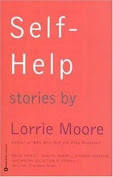( archives: from Randy Johnson)
Reading Forgotten Books: Sort Of: The Kissed Corpse
 Technically,
THE KISSED CORPSE by Asa Baker (Brett Halliday) is not a forgotten book.
James Reasoner posted about the previous book here, Mum’s The Word For
Murder, and mentions this book as coming out the next year, 1939. I
traced down that one and posted on it here.
I enjoyed it which led to me tracking down this second and final volume
of the adventures of writer Asa Baker and police officer Jerry Burke.
Technically,
THE KISSED CORPSE by Asa Baker (Brett Halliday) is not a forgotten book.
James Reasoner posted about the previous book here, Mum’s The Word For
Murder, and mentions this book as coming out the next year, 1939. I
traced down that one and posted on it here.
I enjoyed it which led to me tracking down this second and final volume
of the adventures of writer Asa Baker and police officer Jerry Burke.
Asa Baker knew he’d made a mistake calling the neighbor, Leslie Young, to borrow binoculars to check the flashing lights across the canyon. He barely knew the man, as he was using friend Jerry Burke’s cabin for the weekend to get some writing done. When he looked across the canyon, where the estate of oil baron Raymond Dwight sat, he spotted the great man looking through a telescope off to one side. When he follows the line of sight of the telescope, he spots Young’s wife sunbathing.
With Young standing beside him!
When Young demands to see, then goes stomping off, riding away on the horse on which he’d arrived, Baker smelled trouble.
Trouble was confirmed later when out walking Nip and Tuck, his two Scottie pups, they lead him up to a body off the edge of the Dwight estate. It’s the neighbor, Young, his horse tied to a tree nearby. Tire tracks from a recent car pulling out were in the dust.
What was unusual were the bright red lips,shaped like a female, covering his own and a double-barred cross in lipstick painted on his cheek.
Burke is called in and a note is found on the body, from a Michaela O’Toole inviting him to a meeting in Mexico that very night and beside the name was the same double-barred cross. The widow seems unconcerned about the death, though telling of a phone call from a woman warning Young away from that meeting.
Burke and Baker cook up a scheme where Baker takes the note and goes to the meeting, the idea being to find out maybe a connection to the murder. Along the way, Baker picks up a young woman, Laura Yates, heading there as well. They arrive and meet Michaela O’Toole just long enough for Laura to queer the deal by revealing that Asa wasn’t Young and the Mexican police to arrest them for murdering the dead man.
Things get confusing as the pair investigate. Dwight’s oil holdings, along with all other foreign businesses had been expropriated by the Mexican government. Dwight had a government diplomat at his home with a scheme to get his leases back, never mind anybody else. Young, a man with communist sympathies(remember this was ’39 before Commies became the big bad boogeymen), opposed him. And Young’s widow seemed to be having an affair with Dwight. Laura keeps sticking her nose in.
What’s going on? Another murder happens and a small double-barred cross is found clutched in the hand.
What is the meaning of the cross? Baker researches and learns of a Mayan cult that uses it. What has it to do with oil leases and murders?
A satisfying mystery. As the book went on, I began to get an idea of the murderer, but not the motivations. I like this early Davis Dresser novel, published the same year as his first Mike Shayne novel.
The book I have is a paperback and a strange one at that. It’s digest size, but constructed like a magazine. News print(down to those small holes in the outer edges of the pages) and a flimsy cover, there are sixty four pages folded over and secured with two metal staples(now rusty). Otherwise it’s like a regular book with lines running across the pages instead of double columns like magazines.










.jpg)



















